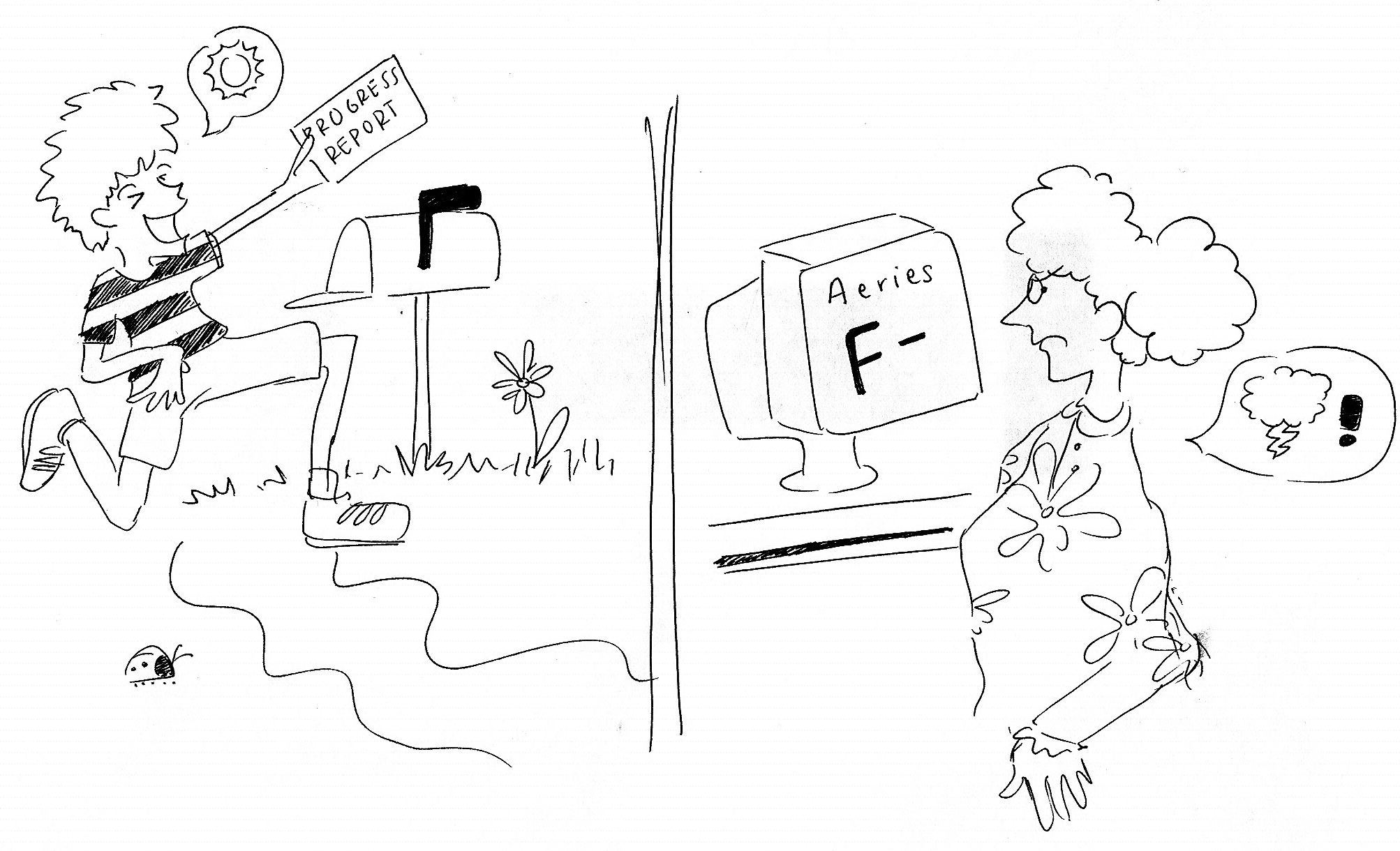Editorial: Aeries system adds to student stress
As the 21st century ages, technology will inevitably only integrate itself further into our lives, but The Olympian staff opposes the most recent technological addition to this school, the Aeries system.
This new grading and attendance-keeping arrangement will allow teachers to update their students’ grades directly online, available 24/7 for students and parents alike to see. It may be a more efficient way of communication between students, teachers, and parents, but after our careful consideration, the psychological effects seem to outweigh the positives.
Besides the obvious reason of preventing students from lying about their grades (which no one does, anyway, right?), consider the pressure. With the constant accessibility of grades, parents will be able to check on their student’s progress at any time. For some students, this means more opportunities for scolding or punishment at home, and increasing pressure to perform as close to perfectly all the time.
Teachers will face pressure as well, to keep up with grading and inputting scores. Eventually, when parents grow accustomed to being kept up to date, that promptness will become the expectation for all teachers. A few teachers are notorious for passing back papers and tests late, which, given the heavy demands of the underpaid and overworked, is understandable.
More than once parents have been known to ask, “What did you get on your test today?” We at The Olympian believe that that question will become more common with the installation of the Aeries system.
When they’re not asking about the results of a test that was taken only hours before, some parents may instead take the time to scrutinize the smaller assignments, such as five-point warm-up questions.
We’ve all gone through rough days, made careless mistakes, or simply lost slips of paper that were meant to be turned in. The little points usually don’t, in the long run, greatly affect a student’s grade, but parents may think otherwise.
This is just another hypothetical stress addition.
Also questionable result of Aeries is the possible development of dependency. If parents are given the means to oversee and direct their teenagers study behaviors, the students may actually come to rely on this guidance and prodding to do their work on time. When these students graduate and leave the nest for college, they might be at a disadvantage in regards to their ability to regulate their own study hours.
The benefits of Aeries are acknowledged by The Olympian staff, but overall are not enough to convince us that the system is an improvement for CVHS.

